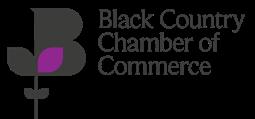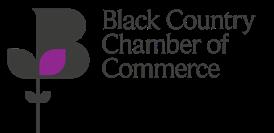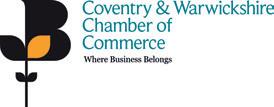WEST MIDLANDS QUARTERLY ECONOMIC SNAPSHOT


Q3 2024






Q3 2024



CEO, GREATER BIRMINGHAM CHAMBERS OF COMMERCE: COMMENT ON RECRUITMENT TRENDS
The latest data from Q3 2024 highlights persistent recruitment challenges across the West Midlands. A significant 62% of firms in the region reported difficulties in attracting talent, up from 60% in Q2, signalling a slight increase. Geographically, Greater Birmingham continues to experience recruitment challenges most acutely, closely followed by the Black Country, but with Coventry and Warwickshire being less affected than its neighbours.
Sector-specific trends reveal manufacturers continue to experience the sharpest increases in hiring pressures, meanwhile, service firms faced more modest challenges. The manufacturing sector has long faced skills shortages amongst skilled manual and technical staff, which exacerbate the recruitment challenges faced by businesses across the board due to the tightening of the labour market arising from the economic uncertainty of recent years.
The interplay of existing skills gaps, ongoing cost pressures and the uncertainty surrounding the Government’s new Employment Rights Bill and what it will mean for businesses creates multifaceted recruitment challenges. Nevertheless, businesses should have confidence that they can face such obstacles with confidence, owing to the long-demonstrated adaptability and resilience of our region’s business community and the support on offer from the local network of stakeholders and Chambers of Commerce.

CEO, COVENTRY AND WARWICKSHIRE CHAMBER OF COMMERCE: COMMENT ON EXPORT TRENDS
My biggest concern from the latest QES was the dip in export orders for businesses across Coventry and Warwickshire. Growing international trade is something that must be a priority for the Government because it is a sure-fire way of boosting the economy and has a positive impact on businesses who do export, as well as their supply chains.
There is support available and I’d urge businesses to get in touch with the Chamber to find out how they can start to export or to grow their overseas markets if they are already trading abroad. Coventry and Warwickshire has a great history of doing business overseas, we have some incredible examples of firms doing amazing things all over the world right now and it is vital we build on this.
More broadly, it is fair to say that businesses have had to live with a huge amount of uncertainty over the past few years and that continued post General Election with a Budget that was unexpectedly tough on companies, with up-front costs rising. It is not surprising, therefore, that business confidence and the wider economic outlook took a little bit of a dip. That said, it still remains in positive territory which means there are prospects for growth across the region and boosting international trade would only serve to help that.

At a time when we want businesses to be confident with their plans moving forward so they can contribute towards the government’s ambitions for economic growth, the results from Q3 2024 make for disappointing reading. Across the region business confidence in both turnover and profitability have either flatlined or ticked down in the wrong direction. This broadly reflects the national picture, although each of the three regions have some variables between manufacturing and the service sector, with Coventry and Warwickshire showing slightly more optimism than the Black Country and Greater Birmingham.
Whilst the first half of 2024 saw better than expected economic and business confidence data, on the domestic front the direction of economic policy and taxation has now become a primary concern and is certainly likely to impact on businesses moving forward.
In Q3 2024, 62% of firms across the region looking to recruit experienced challenges doing so, this figure having increased slightly from 60% in Q2. This signals a reversal of the downward trend in hiring difficulties from Q3 2023 onwards, when a peak of 78% of firms struggling to recruit was recorded.
In line with recent quarters’ trends, recruitment difficulties were seen most frequently in Greater Birmingham, where 67% of firms attempting to recruit struggled to attract staff. 62% faced recruitment challenges in the Black Country, and 52% in Coventry and Warwickshire.
59% of services firms in the region attempting to recruit encountered difficulties in Q3, marking an increase of 3 percentage points compared to Q2. Recruitment difficulties amongst manufacturers have also increased, but to a greater extent than in the services sector – the proportion of manufacturing firms looking to recruit facing hiring challenges rose by 8 percentage points since last quarter to 79%.
In July to September 2024, the UK’s employment rate was 74.8%, having increased by 0.3 percentage points since April to June 2024. The West Midlands employment rate was slightly lower at 73.9%, although it saw a more substantial increase of 1.2 percentage points in the previous three-month period.
The highest employment rate in the UK between July and September 2024 was in the Southwest (78.8%) and the lowest was in Wales (70.0%)
During this same time period, the UK’s unemployment rate was 4.3%, having risen by 0.1 percentage points since April to June. The figure recorded for the West Midlands was 4.5%, marking a decrease of 0.4 percentage points.
*Please note that the ONS Labour Force Survey (LFS) estimates have been affected by increased volatility, resulting from smaller achieved sample sizes, meaning that estimates of change should be treated with additional caution.
The balance score for export sales across the region in Q3 decreased by 3 points to 50, marking a slight decline in confidence in comparison to earlier on in the year.
18% of businesses across the region reported an increase in export sales (having decreased by 8 percentage points since Q2).
63% reported that export sales had remained constant (having increased by 10 percentage points since Q2).
20% of firms reported a decrease in sales (down one point from 21% in Q2)
Looking at the geographical breakdown of West Midlands exporters increasing their overseas sales volumes, this represents 27% of exporters in Greater Birmingham, 22% in the Black Country and 5% in Coventry and Warwickshire (where 87% reported constancy in export sales volumes in Q3, and in comparison, 17% increased their export sales in Q2).
of manufacturers saw an increase in their export sales (down from 31% in Q2), in contrast to 16% of those in the service sector (down from 23% in Q2).
£8.8 billion
The total value of West Midlands exports in Q2 2024 was £8.8bn, a decrease of £0.2bn compared to Q1 2024.
£87.3 billion
The total value of EU exports from the West Midlands remained the same between Q1 and Q2 2024 at £3.7bn, while non-EU exports saw a decrease of £0.3bn to £5.1bn during this same period. Nationally, the total value of exports increased by £0.4bn between Q1 2024 and Q2 2024 to reach £87.8bn. The UK total value of EU exports saw a decrease of £0.8bn to £43.8bn in Q2 2024. Conversely, the value of non-EU exports increased by £1.2bn to reach £44.0bn
The balance score for price pressures rose by 3 points to 71 in Q3 2024 and 42% of businesses expected to increase their prices in the next 3 months (up from 38% in Q2).
35% of manufacturers across the region expected their prices to increase over the following 3 months, having decreased from 41% recorded last quarter, whilst 43% of service firms anticipated increasing prices, down from 37% in Q2.
In Coventry and Warwickshire, 49% of businesses expected an increase in price pressures, followed by 43% in Greater Birmingham, and 30% in the Black Country.
The overall balance score for cashflow in Q3 was 53, which is 2 points lower than the previous quarter. This was based on:
27% seeing their cashflow improve over the past three months
18% of manufacturing firms saw their cashflow improve in Q3, in contrast to 25% in Q2.
experiencing constancy in cashflow
21% reporting a worsening of their cashflow situation
The number of services firms reporting an improvement in cashflow sits at 29%, which is the same as last quarter.
The balance score for cashflow decreased by 5 points to 49 for manufacturers and decreased by one point to 54 for services firms.
Across the region:
21% of firms reported an increase in recent investment in capital expenditure (capex) in Q3, down from 24% in Q2. 62% cited maintaining the same level of capex investment as in Q2, a decrease of 3 percentage points, while 16% revised their investment plans downwards, up from 11% the previous quarter.
25% of firms in the Black Country increased their capex investment, and 21% did so in Coventry and Warwickshire – in contrast to 19% in Greater Birmingham.
The balance score for capital expenditure investment is 51 for manufacturers (a decrease of 7 points) and 53 for services firms (a decrease of 3 points).
CPIH: 2.6% increase
CPI: 1.7% increase
The Consumer Prices Index including owner occupiers’ housing costs (CPIH) rose by 2.6% in the 12 months to September 2024, down from 3.1% in August. On a monthly basis, CPIH rose by 0.1% in September 2024, down from 0.5% in September 2023.
The Consumer Prices Index (CPI) rose by 1.7% in the 12 months to September 2024, down from 2.2% in August, and on a monthly basis, CPI saw a negligible change in September 2024, down from a rise of 0.5% in September 2023.
The largest downward contribution to the monthly change in both CPIH and CPI annual rates came from transport, with significant negative contributions from air fares and motor fuels. The largest offsetting upward contribution came from food and non-alcoholic beverages.
For both CPIH and CPI, the goods annual rate fell from negative 0.9% to negative 1.4% in the 12 months to September 2024. Looking at these rates for services, the annual rate for CPI in this sector fell from 5.6% to 4.9%, and for CPIH fell from 5.9% to 5.6% during the same time period.
The balance score for profitability projections in the West Midlands reached 70 in Q3, a decrease of 3 points on last quarter. This figure comes from:
54% expecting an increase in profits over the next 12 months (a decrease of 3 percentage points compared to the previous quarter).
31% expecting profits to remain constant (unchanged compared to Q2).
16% expecting profits to decrease (a 4-percentage point increase compared to Q2).
The balance score for turnover projections fell by 1 point to 76. This was based on 63% of businesses reporting an increase in expected turnover over the next 12 months, 26% expecting constancy and 11% anticipating a decrease.
Real UK GDP (Gross Domestic Product) is estimated to have increased by 0.1% in Q3 (July to September) 2024, following growth of 0.5% in Q2 (April to June) 2024.
A key driver of Q3’s GDP growth was a 0.8% increase in output from the construction sector, however, a detractor was a 0.2% fall in the production sector’s output.
The services sector was also a positive contributor to GDP growth, with its output increasing by 0.1% in Q3, albeit less than Q2’s growth of 0.6%. Non-consumer-facing services (e.g.: B2B activity) showed no growth in Q3, whereas consumer-facing services grew by 0.5% compared with the previous quarter.
Nominal GDP is estimated to have increased by 0.8% in Q3, which was mainly driven by increases in employee salaries and other income.
The West Midlands Quarterly Economic Snapshot offers an up-to-date picture of the performance of the business community in the WMCA area. It is the most comprehensive, regular report of its kind in the region. Both the national and regional figures are informed by official statistics from bodies such as the Office for National Statistics and HMRC. WMCA area data is also gathered from quarterly economic surveys conducted by the Greater Birmingham Chambers of Commerce, Black Country Chamber of Commerce, and Coventry and Warwickshire Chamber of Commerce. The surveying period for the Q3 Quarterly Economic Snapshot took place between 19th August and 13th September.
The Quarterly Economic Surveys consist of information gathered from local businesses on key indicators such as sales, exports, recruitment plans and turnover projections. In total, 457 businesses across the West Midlands completed the Quarterly Economic Survey with 81% of respondents operating in the services sector and 19% operating in the manufacturing sector. Percentage balance figures are determined according to business responses to the indicators: an increase (multiplied by 1), remain constant (multiplied by 0.5), decrease (multiplied by 0). A score of over 50 is indicative of a growth sentiment. Note that figures may not always total exactly due to rounding differences.



The Greater Birmingham Chambers of Commerce (GBCC) is here to connect, support and grow local businesses. Accredited by the British Chambers, we have acted as the voice of local businesses since 1813. GET IN TOUCH
W: www.greaterbirminghamchambers.com
E: policy@birmingham-chamber.com
T: @grbhamchambers

The Black Country Chamber of Commerce is a membership organisation that provides support to businesses throughout Dudley, Sandwell, Walsall and Wolverhampton. Black Country Chamber provide help, advice and a range of services.
W: www.blackcountrychamber.co.uk
E: website@blackcountrychamber.co.uk
T: @BCCCmembers

The Coventry & Warwickshire Chamber of Commerce is a business membership organisation with five branches across the region – Rugby, Coventry, Mid, North and South Warwickshire.
W: www.cw-chamber.co.uk
E: info@cw-chamber.co.uk
T: @CWCC
For more information on this report, please contact Gemma Dilkes at g.dilkes@birmingham-chamber.com